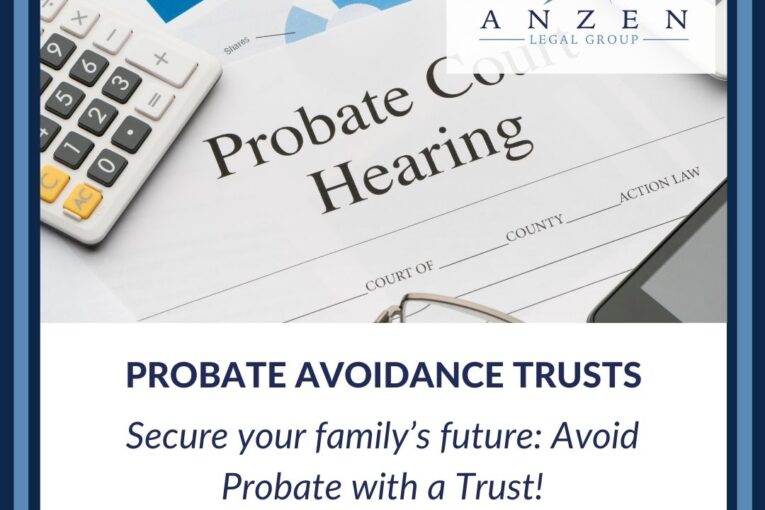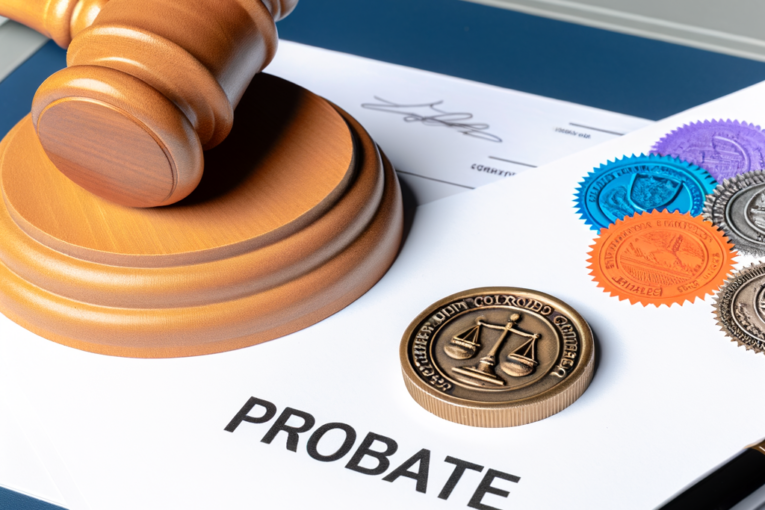When naming beneficiaries for your estate plan, often family and close friends are what come to mind. However, naming a charity as a beneficiary is another option you may want to consider. Giving some portion of your estate to a noble cause can be an impactful way to leave a legacy for the good of others. Whether you want to prioritize charitable giving or not, below are some important considerations when it comes to giving to charity in your estate plan:
Charitable giving can help solidify your estate plan for the future
 One of the benefits of gifting your estate to charity is that it is a future-proof gift. Charities are organizations which tend to be around for a long time and aren’t dependent on any one individual being alive in order to accept that gift. A good example is if you wanted to make a gift to the American Red Cross: this organization was founded in 1881, and will likely be around for decades, if not centuries, to come. In contrast, a gift made to an individual out of your estate may lapse if they pass away before you do. Even if you would want that individual’s heirs to inherit that gift, that individual may have not left any surviving heirs to take that gift.
One of the benefits of gifting your estate to charity is that it is a future-proof gift. Charities are organizations which tend to be around for a long time and aren’t dependent on any one individual being alive in order to accept that gift. A good example is if you wanted to make a gift to the American Red Cross: this organization was founded in 1881, and will likely be around for decades, if not centuries, to come. In contrast, a gift made to an individual out of your estate may lapse if they pass away before you do. Even if you would want that individual’s heirs to inherit that gift, that individual may have not left any surviving heirs to take that gift.
Another reason a charitable gift is future-proof is Colorado law will redirect your charitable purpose as long as it is consistent with the wishes in your estate plan. Let’s say that hypothetical gift you wanted to make to the American Red Cross doesn’t go as planned and it turns out that organization is no longer in operation. That charitable gift will instead be distributed to a different charitable organization similar to the American Red Cross. If you would prefer that charitable gift only goes to that specific organization and not to a similar one, an estate plan can be tailored to meet that wish.
Even if it isn’t a priority to put a charitable gift in your estate plan, naming an entity with staying power such as a church, your alma mater, or other organization is often a good idea as a failsafe. As described above, you never know what the future may look like, and a well-made estate plan should anticipate the future throwing you a curveball. If you create an estate plan that no longer has any named beneficiaries who are able to receive a gift from your estate, intestate succession may instead dictate how your estate is passed on. If there are no remote heirs that the probate court can find to give your estate to, at the very end of the line the government may instead receive your estate. While this may be a remote possibility for many, naming a charity or other organization to give your estate to is a wise decision to ensure the legacy you leave behind supports a cause you care about.
While charities do help create a failsafe for your estate plan due to their durability, it is always a good idea to update your estate plan when big life events occur. This could be an event such as the passing away of a close family member, having a new child (or adopting one), going through a divorce, or other significant life events that may affect your final wishes. Anzen Legal Group can advise and help you create or amend an existing estate plan that best suits your wishes.
Charitable giving can help avoid estate taxes
If you have a large estate, giving a portion of your estate to a qualified charity can help reduce how much of your estate may owe in taxes. In Colorado, there are fortunately no estate taxes at the state level when making final distributions of your estate. However, federal taxes may take a significant portion of your estate if you exceed your individual gift allowance of $12.06 million. Depending on how much value you give to a qualified charity, it may help reduce or avoid federal taxes on your estate.
Common ways estate plans give to charity
There are many ways to give to charity in your estate plan, some of the most common ways include:
Wills
Just like you might name a spouse, child, or close friend to receive a gift in your will, you can do the same for a charity or other organization. Depending on your wishes, this could either be an outright gift of specific property in your estate, or a contingent gift in case other beneficiaries aren’t able to take.
Trusts
A trust is another estate planning instrument that can be used to give to charity. It can have similar instructions as you might create in a will to make gifts after you pass away, but one of the advantages a trust has over a will is that it can be used for charitable purposes while you are still alive. Wills only come into effect when you pass away and serve to settle your last wishes in settling your estate, whereas trusts can be drafted with a broader scope.
Power of Attorney
A power of attorney can be used for charitable purposes as well, and is in effect while you are still living. You can choose what kind of financial and legal powers an agent can do on your behalf as well as if they have those conditions all the time or only while you are incapacitated. Amongst those powers you can give is for your agent to make charitable gifts if you so choose.
 Deeding Real Property
Deeding Real Property
While monetary gifts are common, there are other forms of property, such as real estate, which can be gifted. Depending on the charity, real estate could be valuable for assisting a certain cause you care about. While wills, trusts, and powers of attorney can be used to make a transfer of real property, another approach to gifting real estate to charity is by deeding the property to that charity while reserving a life estate for yourself in the property. This allows you to enjoy the property during your lifetime and automatically transfers the property to that charity once you pass away.
In Conclusion
Charities are an important consideration for any estate plan, whether you want to give to a charity outright, reduce your estate’s tax burden, or want a failsafe in case your other beneficiaries are not able to receive anything. The attorneys at Anzen Legal Group can help guide you through charitable giving in your estate plan. Schedule a consultation with us today to begin planning your legacy.





